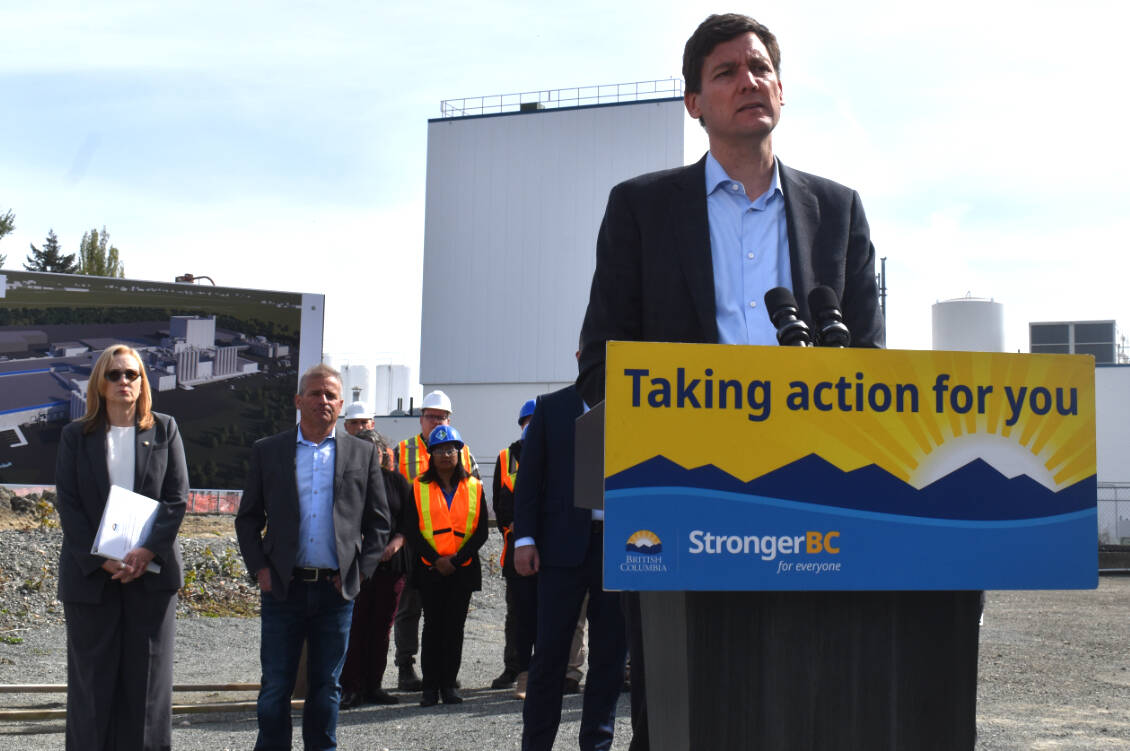An online survey of decided voters gives the B.C. NDP (45 per cent) a double-digit over the runner-up Conservative Party of B.C. (27 per cent).
Meanwhile, the poll conducted by Research Co. between April 15 and 17 sees B.C. United at 15 per cent and the Green Party of B.C. at 11 per cent.
“Those are fairly strong numbers for a government that is entering its eighth year,” said Nicolas Kenny, a professor of history at Simon Fraser University.
The findings match the results of a poll Research Co. conducted in January. It showed the B.C. NDP with 46 per cent, the provincial Conservatives at 26 per cent, B.C. United at 17 per cent and B.C. Greens at 11 per cent.
The B.C. NDP is the first choice across all three age groups and across all regions in B.C., especially on Vancouver Island (56 per cent) and Metro Vancouver (47 per cent). The race is tighter in Fraser Valley, southern Interior and northern Interior with the NDP leading the Conservatives by one, three and five points respectively.
Almost four out of 10 surveyed British Columbians (37 per cent) consider the related issues of housing, homelessness and poverty the most important issue, followed by health care (21 per cent) and the economy and jobs (18 per cent). Five per cent of surveyed British Columbians consider crime and public safety the most important issue, a figure that may surprise some because recent emphasis on public safety issues within the context of drug decriminalization.
Premier David Eby remains the most popular of the major party leader with an approval rating of 51 per cent, ahead of the B.C. Greens’ Sonia Furstenau (37 per cent), B.C. United’s Kevin Falcon (36 per cent) and the Conservatives’ John Rustad (35 per cent).
RELATED: BC NDP maintaining a sizeable lead in latest polls
While six months before the actual election is an “eternity,” the consistent level of support for the party itself and Eby’s own numbers are good news for the B.C. NDP, Kenny said.
“For an NDP government seeking re-election in the fall, these numbers are pointing in the right direction,” he said.
This poll in one of several recent polls showing the Conservatives in second. Recent comments from Eby as well as his behaviour in Question Period that sees him answer questions from the Conservatives but ignore questions from B.C. United suggest he is treating them accordingly.
“I think it is sort of a notorious reality of our province that polls can be quite different from the final outcome,” Eby said last week, when asked whether he considers the Conservatives the party to beat.
“So for me, in the lead-up to the election, I’m conscious of the fact that the Conservatives are polling second…so when you see rising the way the Conservative Party (of B.C.) has, it is incumbent on me to ensure that British Columbians understand when they mark that ballot, what the costs are going to be for them if they head in that direction,” he said.
Falcon said the above is part of Eby’s rationale is to divide the “centre-right” of the spectrum. Kenny agrees that Eby benefits by framing the Conservatives as the main political opponent.
“Falcon is right,” he said. “It does emphasize the attention being paid to the Conservatives and it gets us talking about this idea that the Conservatives could supplant (B.C. United).”
Kenny added that Eby sees a “clear foil” in the provincial Conservatives.
”Not only does he boost the Conservatives, he also shows his electorate just how different they are,” he said. “By pumping the tires of the Conservatives, he can create clear wedge issues.”

